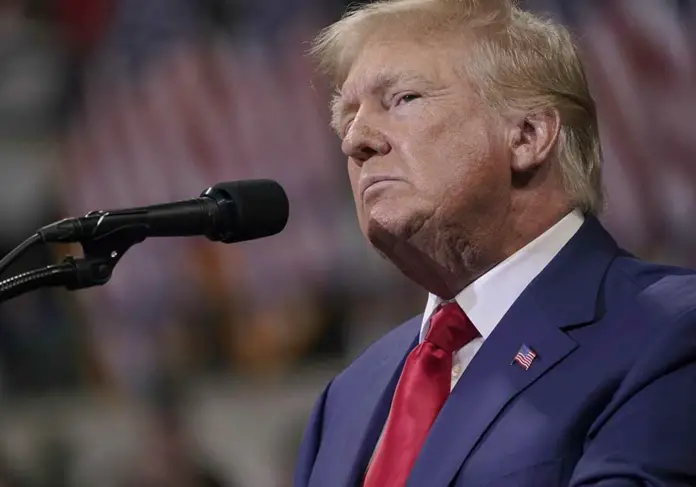Donald Trump isn’t the first to face criticism for flouting rules and traditions around the safeguarding of sensitive government records, but national security experts say recent revelations point to an unprecedented disregard of post-presidency norms established after the Watergate era.
Document dramas have cropped up from time to time over the years.
Democrat Lyndon B. Johnson’s national security adviser held onto explosive records for years before turning them over to the Johnson presidential library. The records showed that the campaign of his successor, Richard Nixon, was secretly communicating in the final days of the 1968 presidential race with the South Vietnamese government in an effort to delay the opening of peace talks to end the Vietnam War.
A secretary in Ronald Reagan’s administration, Fawn Hall, testified that she altered and helped shred documents related to the Iran-Contra affair to protect Oliver North, her boss at the White House National Security Council.
Barack Obama’s CIA director, David Petraeus, was forced to resign and pleaded guilty to a federal misdemeanor for sharing classified material with a biographer with whom he was having an affair. Hillary Clinton, while Obama’s secretary of state, faced FBI scrutiny that extended into her 2016 presidential campaign against Trump for her handling of highly classified material in a private email account. The FBI director recommended no criminal charges but criticized Clinton for her “extremely careless” behavior.
As more details emerge from last month’s FBI search of Trump’s Florida home, the Justice Department has painted a portrait of an indifference for the rules on a scale that some thought inconceivable after establishment of the Presidential Records Act in 1978.
“I cannot think of a historical precedent in which there was even the suspicion that a president or even a high-ranking officer in the administration, with the exception of the Nixon administration, purposely and consciously or even accidentally removing such a sizable volume of papers,” said Richard Immerman, who served as assistant deputy director of national intelligence from 2007 to 2009.
FBI agents who searched Trump’s Mar-a-Lago resort on Aug. 8 found more than 100 documents with classification markings, including 18 marked top secret, 54 secret and 31 confidential, according to court filings. The FBI also identified 184 documents marked as classified in 15 boxes recovered by the National Archives in January, and it received additional classified documents during a June visit to Mar-a-Lago. An additional 10,000 other government records with no classification markings were also found. That could violate the Presidential Records Act, which says that such records are government property and must be preserved.
That law was enacted after Nixon resigned from office in the midst of the Watergate scandal and sought to destroy hundreds of hours of secretly recorded White House tapes. It established government ownership of presidential records starting with Ronald Reagan.







